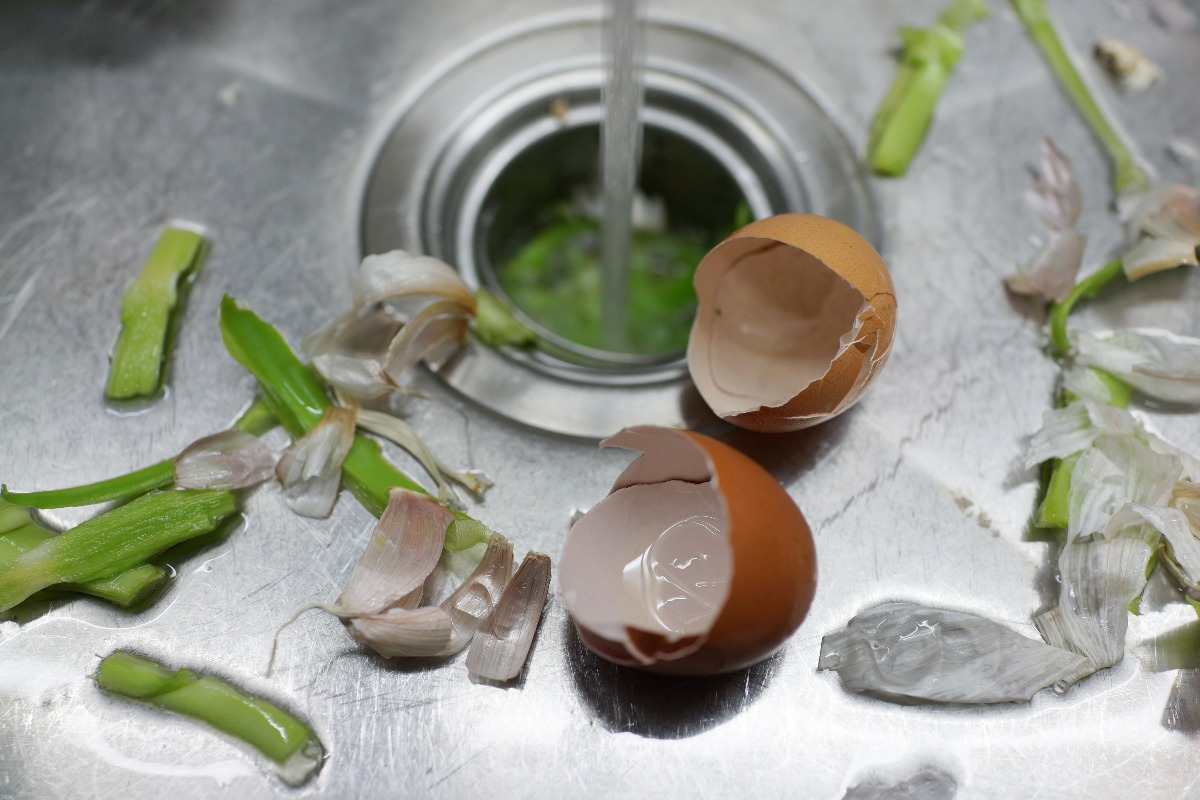Some of the scents in your home should only be flowers, baked cookies, or ones you put there specifically. Other scents should be unwelcome, especially since they can be signs of serious problems in maintenance or infestation. Learn about the different possible scents in your home, their causes, and the ways you can eliminate them.
1. Sewer Smells In the Kitchen
Say goodbye to your appetite if your kitchen smells like a sewer. Unless your cooking is horribly bad, the foul odors probably come from a clogged P-trap. Oil and grease can accumulate in your drain, turning solid as temperatures drop. Particles of food can also cause blockages, especially if your drain doesn’t have a strainer.
Before you spend money on a plumber, try a bit of baking soda and vinegar. The reaction from acid and base should dislodge most clogs, or you can buy drain cleaners like Drano and Plumr. If the sewer smells occur in your basement, it’s probably because of a dry P-trap. Just take a bucket of water and pour it over the drain to refill it.
2. Coriander In the Bedroom
The scent of musk or coriander in the bedroom can be a sign of a bedbug infestation. The musky odors are produced by bed bug sweat, and it would take hundreds of them for it to be noticeable. Check your pillows and sheets for tiny blood drops to confirm the infestation, and call exterminators once you’re sure.
Bed bugs are resilient pests, and only heat treatment can get rid of them. Bed bug infestations can lead to insomnia, depression, and anxiety, not to mention skin problems and the risk of infection caused by nightly feedings.
3. Burning Smells In the Laundry
According to the National Fire Protection Association, fires involving dryers and washing machines account for 4 percent of all fires. While most fires are caused by gas leaks, accumulated lint in dryer vents also poses serious fire hazards. Dryer vent cleaning is particularly popular, especially after the 2016 explosion in Omaha that killed one person and damaged five homes.
4. Nauseating Sweetness In the Walls
Sickeningly sweet odors are usually signs of death and decay. Animals can get trapped in the drywall and eventually die. The sickening odor usually lasts for three weeks, around the time it takes the carcass to dry out. The odors get worse as time passes, attracting pests and filling the surroundings with bacteria. Of course, you can wait it out if the affected area can be blocked off. Otherwise, you might need to dig out the carcass by cutting through the sheetrock.

5. Sweaty Clothes in the Air Vents
If the air coming out of your air conditioning vents smells like socks or sweaty clothes, you have a mold problem in your heating, ventilation, and air conditioning (HVAC) system. Constantly running the AC can cause significant condensation. Water slowly accumulates in your pipes, becoming a breeding ground for bacteria and mold. HVAC contractors dub the problem “dirty sock syndrome.” The problem is fairly common and requires special maintenance from your local HVAC experts.
6. Old House Scents on the Dry Wall
The musty odors of old homes are often associated with their senior residents. However, the seniors living in a home are not the cause of the odors. The distinct old house smells are produced by mold. Houses in humid areas will usually have the problem.
Water damage from leaky pipes, gutter problems, and condensation can also provide mold with the dampness it needs to grow. The usual bleach, vinegar, and soap can handle small patches of mold. Larger patches might require extensive repairs and professional services to determine the extent of the damage.
7. Rotten Eggs in the Air
The smell of bad eggs often portends immediate danger. The scent comes from methyl mercaptan, an additive used to give odorless natural gas and propane distinct odors. The rotten egg smell is usually a sign of gas leaks. Leave your house once you detect the smell. Open a few windows if the odor isn’t too strong.
Otherwise, leave. Don’t turn any switches on your way out. An electrical spark can serve as a trigger, causing an explosion as it combusts all the accumulated gas in the air.
Don’t let your house reek of anything unpleasant or terrible. You should note any drastic changes in the smells in your abode and take the most appropriate action to deal with the situation. Ignoring persistent smells can be dangerous, especially if they pose health or fire risks. Don’t let these issues get past you.
